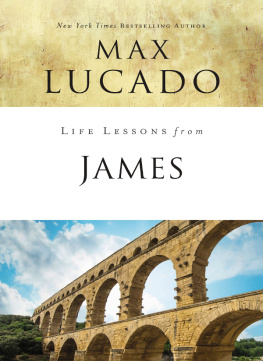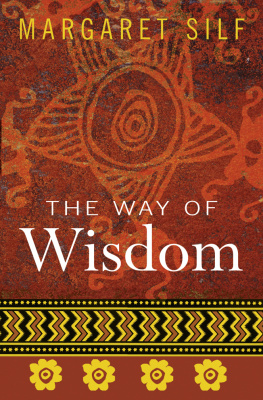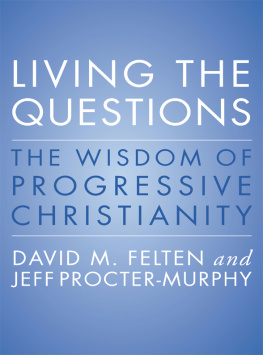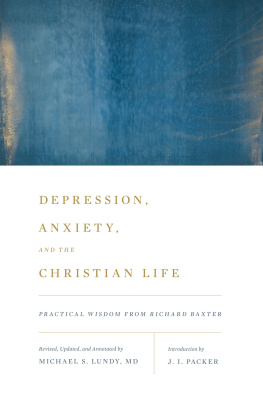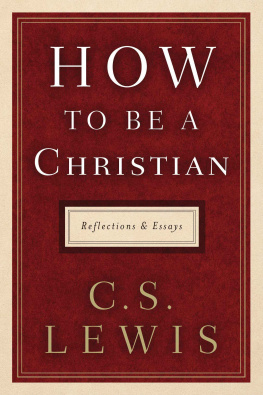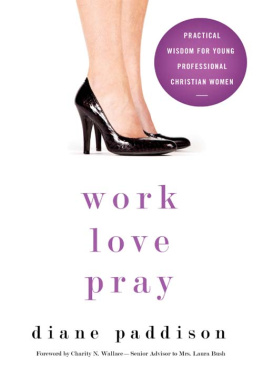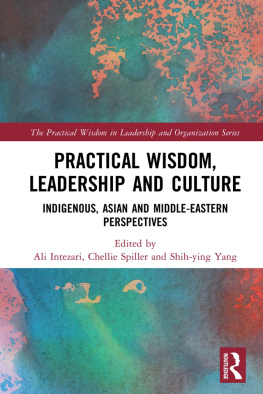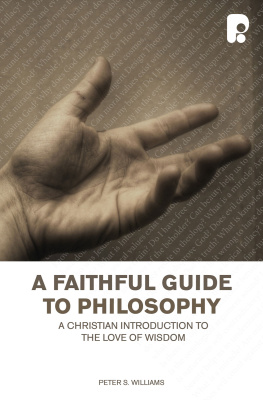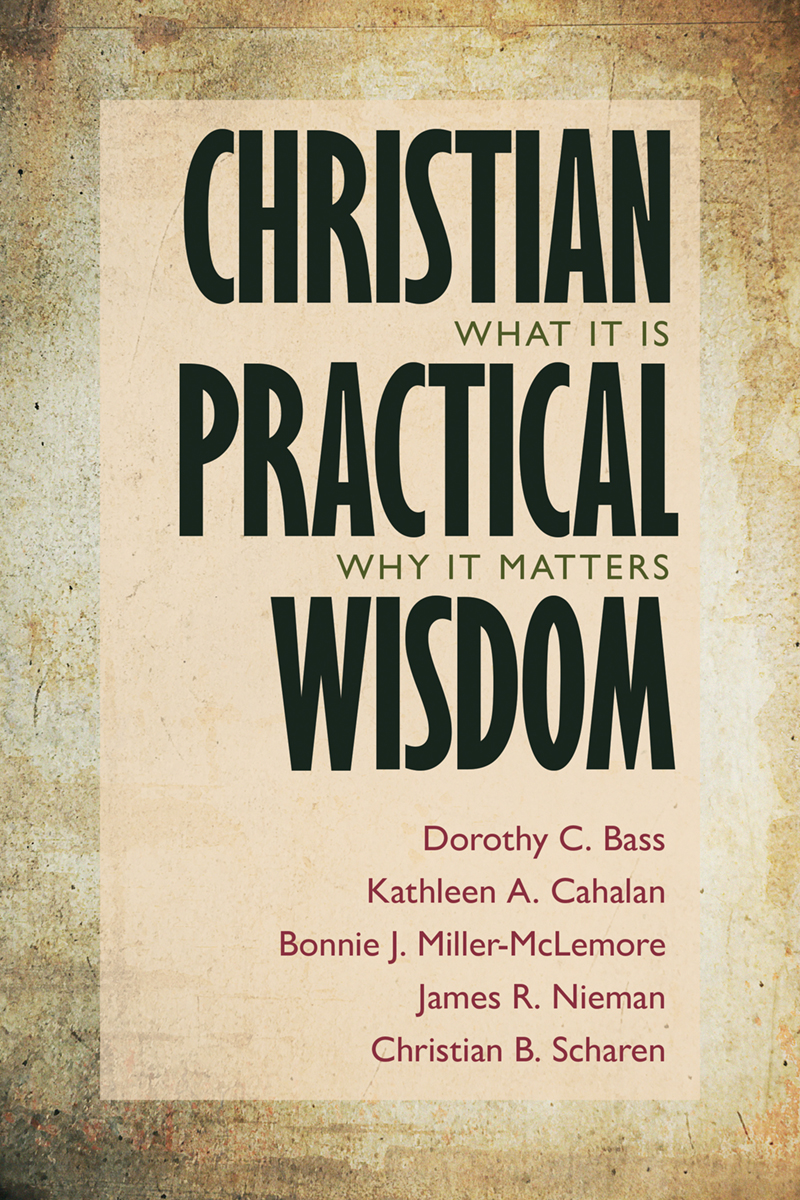This book is a very important intervention into the debate about practical wisdom. We have long anticipated the potential of this term for scholars, educators, and practitioners alike, but this is one of the first attempts to address practical wisdom in an integrated fashion. A bold and innovative study that will enrich and revitalize practical theology.
Elaine Graham
University of Chester
Offering a robust and illuminating evocation of practical wisdom or know-how from a Christian theological perspective, this volume not only describes practical wisdom but also demonstrates it through the synergistic collaboration of five gifted theological educators.... An ideal book for anyone who wants to both study and grow in the practice of Christian wisdom.
John D. Witvliet
Calvin Institute of Christian Worship
Christian Practical Wisdom
what it is, why it matters
Dorothy C. Bass
Kathleen A. Cahalan
Bonnie J. Miller-McLemore
James R. Nieman
Christian B. Scharen
William B. Eerdmans Publishing Company
Grand Rapids, Michigan
2016 Dorothy C. Bass, Kathleen A. Cahalan, Bonnie J. Miller-McLemore,
James R. Nieman, and Christian B. Scharen
All rights reserved
Published 2016 by
Wm. B. Eerdmans Publishing Co.
2140 Oak Industrial Drive N.E.,
Grand Rapids, Michigan 49505
Printed in the United States of America
Library of Congress Cataloging-in-Publication Data
Names: Bass, Dorothy C., author.
Title: Christian practical wisdom: what it is, why it matters / Dorothy C. Bass, Kathleen A. Cahalan, Bonnie J. Miller-McLemore, James R. Nieman, Christian B. Scharen.
Description: Grand Rapids, Michigan : Eerdmans Publishing Company, 2016. | Includes index.
Identifiers: LCCN 2015046915 | ISBN 9780802868732 (pbk.: alk. paper)
eISBN 9781467445061 (ePub)
eISBN 9781467444590 (Kindle)
Subjects: LCSH: Christian life. | Wisdom. | Spiritual life Christianity.
Classification: LCC BV4501.3 .C493 2016 | DDC 248 dc23
LC record available at http://lccn.loc.gov/2015046915
www.eerdmans.com
For Craig Dykstra
and with thanks to
our families and partners,
our various home institutions,
the Collegeville Institute for
Ecumenical and Cultural Research,
Saint Johns Abbey,
and Lilly Endowment,
which provided financial support for
our work together through
a grant to Valparaiso University
Contents
How the Practice of Lectio Divina
Heals and Transforms
The Loss and Recovery of Practical Wisdom
in the Modern West
Biblical Imagination as a Dimension
of Christian Practical Wisdom
Spiritual Practices and the Search for
a Wisdom Epistemology
An Invitation to Experiment,
an Expression of Thanks
Why is the very kind of knowledge that people need to live well what we call practical wisdom the least understood, the hardest to learn, and often the most devalued kind of knowledge?
On the one hand, this knowledge is present everywhere. A competent nurse, a good parent, a seasoned mechanic, a thoughtful congregant, a trusted daycare worker, a sage administrator all possess such knowledge. It shows up in a kind of good judgment they are able to put into play in a particular time and place, sometimes as if by second nature. As they address the needs arising around them, they are engaged, flexible, attuned, and attentive on many levels cognitively, emotionally, relationally, morally, and spiritually. Watch them, and you will see an intelligence of practice that fosters responsive action carried or even incarnated in their bodies hands, facial expressions, posture, voice.
On the other hand, the importance of this kind of knowledge and the challenge of enacting it is most often not articulated or appreciated, and its features are not well understood. This disregard is no accident. Rather, it is the result of a specific understanding of knowledge dominant in the modern West that actively marginalizes embodiment and practical engagement as relevant dimensions of knowledge. This dominant sort of knowledge, called episteme and theoria in ancient Greek and Latin, undergirded the Enlightenment and its almost singular focus on objective, abstract knowledge. The rise of science and of specialized academic disciplines in the modern university greatly advanced the privileging of theoretical reasoning. This bias still exercises immense influence in the academy, including seminaries and divinity schools. The privileging of theory removed from practice is a special problem in professional schools, and theological schools in particular, because graduates need to put their accrued knowledge into action. In theological education, moreover, the subject matter itself runs far beyond what can be made available in textbooks, classroom lectures, and exams. Indeed, Christianity and religion in general contain elements that cannot be understood fully from theoretical and objective perspectives. When such perspectives outweigh other emphases, indispensable elements of Christian faith and life are obscured.
In this book, we claim that a kind of knowing resides at the core of the Christian life that is closer to practical than to abstract reason closer, that is, to embodied, situated knowing-in-action than to disembodied, theoretical knowledge. The purpose of this book is to lift up the often unnoticed practical wisdom that is a necessary element of Christian faith and life. As we show what it is and explore why it matters, the authors seek especially to persuade the leaders of congregations, seminaries, and other religious and educational institutions of its importance. Many readers, we anticipate, will readily agree that this kind of knowledge exists, and throughout the book we cite other important efforts in theology and beyond to get at this knowledge. However, we intend to press the case beyond general agreement and prior efforts. We shall urge readers to consider both the sources of practical wisdoms marginalization and the damage done to living communities of faith as a result. Moreover, we will go beyond analyzing the problem. We will illustrate or show how practical wisdom takes shape in several arenas and explore fresh ways it might be reconceived. We will especially portray and advocate for the value of this form of knowing for Christian communities.
It is important to clarify at the outset that our purpose is to rebalance practical with theoretical wisdom, not to overthrow the latter. We note, but press against, the temptation to argue for one kind of knowing while falling into binary thinking that opposes the other. We could not write this book or practice our vocations as scholars, friends, family members, citizens, and disciples without the material benefits yielded by modern science and constant reliance on some aspects of the theoretical knowledge in which we have been formed as scholars and as members of modern civil society. Knowledge that is only contextual, local, and particular is not practical wisdom, for such knowledge too easily becomes closed, uncritical, and disengaged from larger realities and truths. Rather, practical wisdom emerges in the interplay of various realms of knowing, from the most abstract generalized theories We see ourselves involved in the retrieval work Toulmin and many others have undertaken, seeking a rebalancing rather than a pendulum swing toward a triumph of the practical over the theoretical.
Over the course of several years, we have worked diligently together on the questions at the heart of this book because we are acutely aware of the consequences when practical wisdom is overlooked. When Christian academic and ecclesial communities valorize theological abstraction and cognitive belief in ways that imply that practical wisdom is a second-rate, dispensable form of knowledge, Christian discipleship is undermined as a way of life and diminished as a witness in society. An important Carnegie study led by education scholar Charles Foster was sensitive to this concern. One finding was that most seminary faculty continue to privilege critical thinking as the goal of their teaching despite many efforts to reform seminary curricula and pedagogy toward the practice of ministry. ideas and the inculcation of students into academic disciplines is inadequate to the richness and complexity of ministry and faith.


